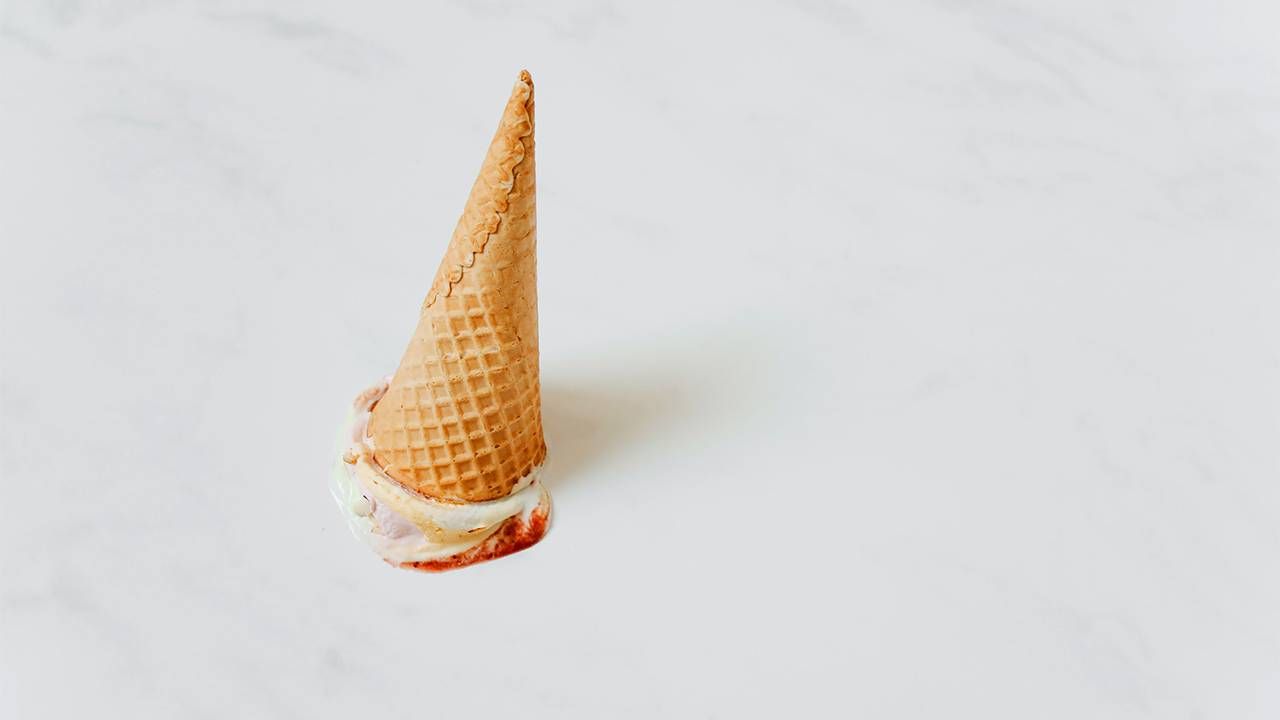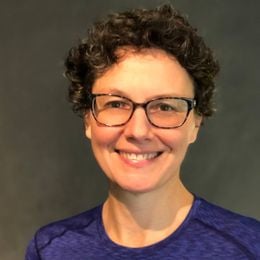Are Your Healthy Habits Making You Miserable?
A wellness writer wonders, what's healthy enough?
As a wellness writer, I stay abreast of the latest health and medical research by reading books and scientific studies, attending webinars, and following top wellness influencers on the podcast circuit and social media. The upside is that I'm very well-informed on how to live a long, healthy life.

Unfortunately, knowing and doing are two different things, so there's a downside, too: I often feel that my healthy habits are inadequate, and my attempts at getting "super healthy" usually end in disappointment. Undoubtedly, this cycle of trying, failing, and trying again has made me much healthier than I would otherwise be, but it can also make me feel miserable sometimes.
Comparing Myself to Wellness Titans
Wellness podcasts are a big part of my problem. These shows feature big-name doctors and scientists with hundreds of thousands of followers, best-selling books, and famous TED talks — and none of them achieved that level of success by leading "pretty healthy" lifestyles.
Although my meals tend to be pretty healthy, dessert is a regular fixture in my life, not to mention "second breakfast."
These people plunge themselves into ice-cold water every morning; eat all of their calories within a few hours a day (except when they're eating nothing at all for a week at a time); sleep in what's essentially a blacked-out, climate-controlled Faraday cage, nestled beneath a 20-pound gravity blanket; take a cabinetful of medications or supplements; and strap continuous glucose monitors to their svelte, non-diabetic arms to see what effect a handful of grapes might have on their insulin response. But the most extreme habit of all, in my opinion, is that they don't eat dessert, like, ever!
Meanwhile, I count chopping wood and walking the dog as exercise, wake up five times a night with hot flashes, and although my meals tend to be pretty healthy, dessert is a regular fixture in my life, not to mention "second breakfast."
I was tired of feeling guilty about my healthy habits (or lack thereof) and wondered whether I needed to go to extremes to avoid future ill health. I hoped there might be just two or three things I could focus on to live a long, healthy life, but I didn't know if that was realistic.
To find out, I talked with two of the biggest names in wellness, and those conversations shed new light on the issue and helped answer my questions. If striving to be healthy sometimes makes you miserable, I hope their insights will help you, too.
Living Like a Centenarian
My first interview was with Dan Buettner, a National Geographic Fellow and best-selling author of The Blue Zones Kitchen. If you're unfamiliar with the term, the Blue Zones are those geographic regions where people live for 100 years at a rate many times that of the rest of the world. Buettner and his team have been studying the people in those areas for over a decade, and he's discovered that they share a set of common lifestyle factors likely responsible for their excellent health and longevity.
I like the Blue Zones model because I already follow many of its prescribing habits. Eat mostly plants? Check. Move naturally? Check. Hang out with fun people? Check. Drink wine every evening? Check!
There are nine factors in all, though - The Power 9 - which sounds like a lot to me. So I asked Buettner if there were just two or three I could focus on for maximum effect. If so, I hoped they were the ones I was already doing, but no such luck.
"Longevity is the sum of a bunch of small things," he explained, "and the key isn't knowing what those small things are because we've heard them all a million times; it's the mutually-supported, interconnected web that encourages those small things."
"So surround yourself with healthy, active, happy people whose lives are filled with purpose."
I asked what that might look like in practice. "First, I'd think about moving to a clean, walkable, happy neighborhood," he said.
This seemed kind of radical to me, but I was okay with it because I live in the middle of the Chippewa National Forest, where the air is pristine, I can walk for miles and miles, and the six people I know up here are pretty darned happy.
But what about other people — should they consider moving if they don't live in a place that fits the bill? "Everybody should be thinking about doing that if they're serious about getting healthy," he said emphatically.
"Number two is curate your immediate social circle," he went on. "Don't dump your obese friends, but proactively make friends with people who are active or engaged with new hobbies. Unhappiness and loneliness are contagious. So surround yourself with healthy, active, happy people whose lives are filled with purpose."
Surround myself? I jotted "Get friends" on scratch paper and underlined it.
"Finally," he said, "I'd get your hands on a few whole-food, plant-based recipe books. Find half a dozen recipes you and your family would like, and then make them."
That sounded good, but I had to ask, "What about dessert? Do these Blue Zones people ever treat themselves?"
"Yeah, sure," he said (I smiled), "at a party, but typically dessert is a piece of fruit." (I frowned.) "They haven't napalmed their taste buds, so the only satisfying sweet is a pint of Ben & Jerry's."
I murmured my agreement with him as I thought, "Mmmm, Ben & Jerry's!"
The takeaway was that I'm doing many things right, but there is room for improvement. My coffee break treats and dessert seemed to be in great peril.
Fountain of Youth: A Lifestyle Model
My second phone call was to David Sinclair, professor of genetics and co-director of the Paul F. Glenn Center for Biology of Aging Research at Harvard Medical School. He's also the best-selling author of "Lifespan: Why We Age - and Why We Don't Have To" and the host of the podcast, Lifespan with Dr. David Sinclair.
Sinclair is looking for more than just how to live a long, healthy life. Instead, his research aims to find the keys to slowing, stopping, or even reversing the aging process at a molecular level.
While I can't afford the gene therapies, medications, or supplements Sinclair writes about in "Lifespan," he also espouses plenty of other lifestyle habits which are free, so I asked him to give me his top two or three.
"If there's only one thing I could recommend," he said, "it would be for people over 30 to get out of the habit of eating three meals. Our body is not designed to be constantly fed. So if your body is always fed, it doesn't care about fighting the aging process or defending itself against diseases."
Okay, three meals a day is the barest minimum for me. However, I can't remember a day in the past month when I didn't also have many snacks ("healthy" ones, of course) and dessert. So how am I supposed to do this?
"The trick is not to try to change your lifestyle too quickly," he said, "and try to substitute activities and food rather than add and subtract." He elaborated: "I decided to eat within a certain window of time — four hours a day. To do that, I had to do it gradually and have tea and coffee available all the time so that the habit of putting something in my mouth and feeling full was still there."
That sounded miserable to me, but so are the aches and pains my fifties have ushered in, so I asked him to go on.
"It takes a few weeks for your body to get used to new things - exercise, new food, a new eating window - so take it slowly and give it a few weeks."
"The second thing would be to move. Get a standing desk, walk 7,000 steps daily, and lose your breath from vigorous exercise for at least 10 minutes three times per week."
I scribbled, "Move more and faster" on the scratch paper.
"And third," he said, "consume molecules made by stressed plants, plants grown under less-than-ideal conditions."
This is not the week-old, wilted lettuce at the grocery store but food grown without pesticides, fertilizer, or adequate water. In other words, pretty much everything is coming out of my garden. Excellent!
He added, "It takes a few weeks for your body to get used to new things — exercise, new food, a new eating window — so take it slowly and give it a few weeks."
Not Having Your Cake and Not Eating It, Too
I got the message from Sinclair loud and clear, but I couldn't imagine fasting for 20 hours a day, especially if dessert wasn't included in that four-hour window. Was this important for health and longevity? So I sent a follow-up email to Dan Buettner, asking about meal frequency and timing among Blue Zones centenarians.
He wrote, "In all Blue Zones, they tend to consume most calories before their midday meal and have little or no dinner. Several of the oldest old told me that they eat only one or two daily meals."
Well, crap. I knew what I needed to focus on now, and if I were going to do this, I'd have to add "Avoid sugar" and "Short eating window" to my scratch paper wellness plan.
I decided right then on a new path forward, gritting my teeth as I made the notes on my scratch paper. I would continue to seek out the latest information on health and longevity, and I would continue to strive for optimal health, but I would stop feeling bad about it when things didn't go perfectly.
I put down my pen with the satisfaction of making a big decision. It was almost five o'clock, so I celebrated with a glass of wine.


